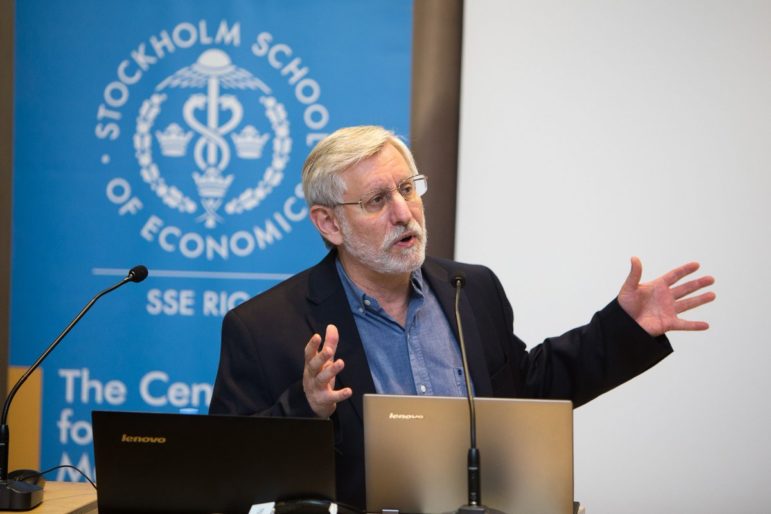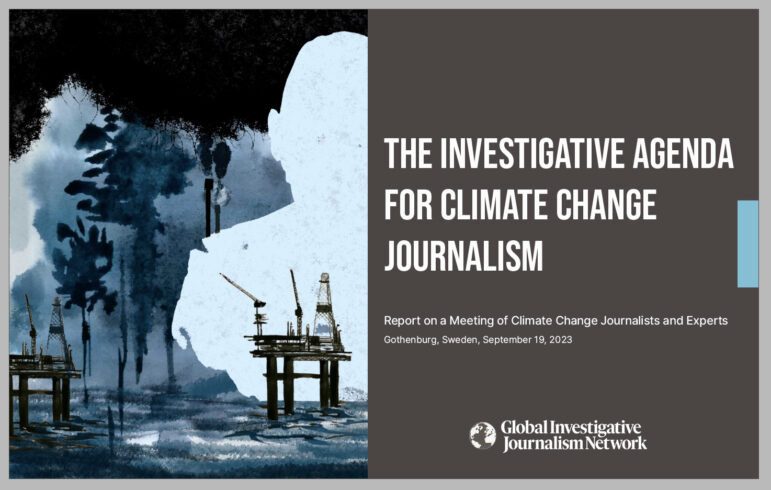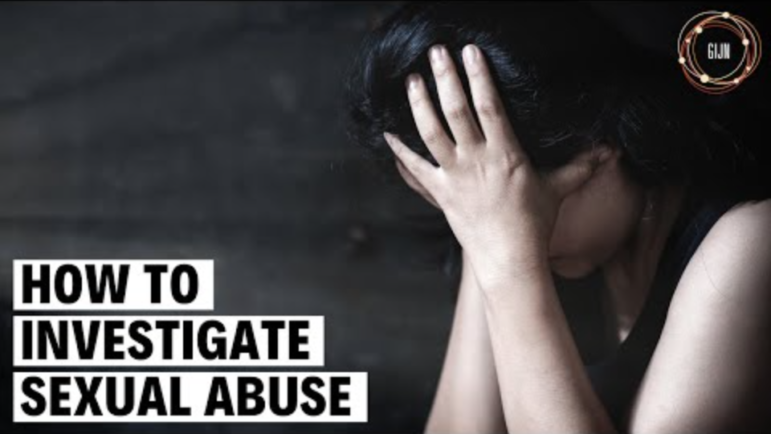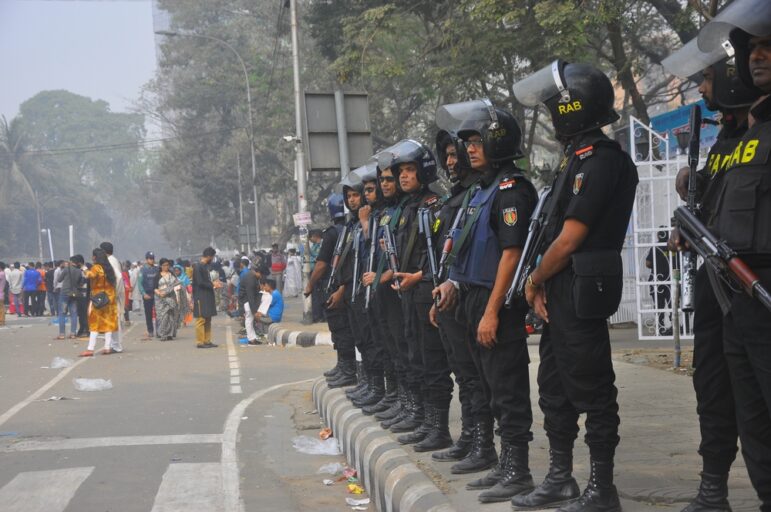

David Kaplan on the Future of Investigative Journalism: ‘We’re Just Getting Started’
Read this article in
David Kaplan could well be credited for strengthening watchdog journalism around the world. As co-founder and inaugural executive director of the Global Investigative Journalism Network, he led the organization from an initiative with a few hundred followers in 2012 to a “network of networks” spanning some 244 groups in 90 countries.
Kaplan, who was among those representing 30 member organizations that founded GIJN in 2003, became its first full-time executive director in February 2012.
In December he announced his retirement, effective from September 2023 (at the conclusion of GIJC23). WAN-IFRA sought his insights on the future of investigative journalism in a divided world.
WAN-IFRA: Twenty years ago, you made the case for investing in investigative journalism by establishing the crucial role it plays in democracy and international development. What changes, if any, would you make to that message today? What is your outgoing message to investigative journalists on the world’s stage today?
David Kaplan: Fifteen years ago, investigative journalism was a largely boutique field within media development. The emphasis was elsewhere: on raising standards, crisis response, reporting on health, elections, gender. Those are all worthy goals, but largely ignored was in-depth, accountability journalism — investigative reporting — while higher risk, investigative journalism also brings higher impact.
We’ve shown through data, case studies, and project after project how important it is to include investigative elements in any broad attempt to build capacity and empower independent media.
Watchdog reporters are on the front lines, exposing lack of accountability and abuses of power. And in the process they are helping hold back the forces of autocracy and kleptocracy. Thanks to lots of hard work by the investigative journalism community — backed by a growing number of donors — watchdog reporting has gone global. Over the past decade, GIJN’s own membership — of nonprofit organizations focused on investigative journalism — has jumped from 49 groups in 31 countries to 244 groups in 90 countries.
In some ways, we are victims of our own success. We now have more journalists in more countries, with better tools and better sources, asking tougher questions of those in power. That often doesn’t go over well with autocrats used to not being challenged, and one result is that we’re under fire almost everywhere — including in countries where we thought our profession was reasonably secure.
But we’re not going anywhere — you can’t put this genie back in the bottle. The methodology and practice of how to do public interest, accountability journalism is now in dozens of languages, and, despite all the challenges, our ranks are growing, not shrinking.
WAN-IFRA: What are your thoughts on leaving at this critical juncture in the global media sector, with tech dominating and trust in jeopardy?
DK: Technology has been our biggest enemy and our biggest friend. We’ve watched the digital transformation wipe out tens of thousands of media jobs and destroy the economic base that supported in-depth reporting. It’s spread invasive surveillance technology worldwide, making it tough to protect our sources and ourselves. But at the same time, it’s empowered us, allowing investigative journalists to form unprecedented networks around the world, set up secure collaborations, and analyze extraordinary amounts of data. It’s quite hard to keep a secret in this day and age, even in Beijing and Moscow. We can get an entire bank’s records leaked on a single thumb drive, use satellite imagery to detect war crimes, and work across borders in ways that were unimaginable just a few years ago.
As for declining trust in the media, I know it’s an issue, but I don’t get worked up over it. Of course journalism faces broad challenges of improving media literacy and battling disinformation, but our community needs to keep its focus — on investigations. There simply are not enough investigative journalists in the world. It’s like trying to cure disease without doctors to diagnose what’s gone wrong.
WAN-IFRA: The past two decades have seen severe disruption in media, particularly for journalists. The community has expanded, with a growth in citizen journalism and all access to open source tools. How does investigative journalism best sustain its hold on standards, ethics, and integrity in this environment?
DK: We’re big believers in democratizing our profession — some of the best investigations are done by NGO staff, scholars, and outraged citizens. But you need standards, you need to be fair, and you need to value accuracy above all. It’s important that we globalize our training as well as our reporting. Journalism educators are making rapid strides in these areas, and they’ve been invaluable partners as we spread investigative reporting to the far corners of the Earth. We’re also training in places we’ve never reached before, from Indigenous communities to island nations.
And we’re working hard to create a canon of reference material in languages besides English. In just the past two years, GIJN has translated reporting guides and tip sheets into 34 languages.
WAN-IFRA: You’ve overseen untold number of stories. Which particular piece made its mark on you, and why?
DK: I love journalism. When I found out there was a profession in which you could travel, gather stories about people, and write them up for others to read, I was hooked. I spent a lot of my career writing about criminal activity. It’s always fascinated me how some people can act with such impunity and criminality, and not think they have any responsibility to the rest of the world. Holding them to account is a great calling.
I’m particularly fond of a cover story I did for US News & World Report back in 1998 on the looting of Russia. It was called Dirty Diamonds, and it was about the systematic looting of Russia’s Fort Knox by its own officials. That piece had everything — great cops, evil crooks, a wonderful story line, and a broader political message about the times we live in. Another piece, when I was running ICIJ in 2010, was Dangers in the Dust, a cross-border investigation into the asbestos industry. Banned in the West, asbestos was being dumped on developing countries and set to unleash new epidemics of cancer that could have been prevented. We translated that project into multiple languages, and I’m sure we helped save some lives.
WAN-IFRA: What are your hopes, fears and predictions for the future of investigative journalism?
DK: Our profession faces an extraordinary range of threats — harassment lawsuits, political pressure and intimidation, threats to our physical safety, imprisonment, widespread surveillance, a lack of funding. As Zaffar Abbas, the editor of Pakistan’s Dawn, put it, “They’re no longer trying to kill journalists, they’re trying to kill journalism.”
Having said that, though, I remain an optimist at heart. We’ve made extraordinary progress in the past 20 years, and we’re not going away. We’re experimenting with new models to support our craft, and the quality of the journalism keeps improving. In Africa, Asia, Latin America, our colleagues are doing world-class work on a level we rarely saw just a generation ago. That’s encouraging. And there’s unprecedented support for what we do. The development community now understands that a watchdog news media is as important to progress as good health care and sound economic policy. Subscribers, members, and donors are replacing advertisers to fund our work.
It turns out that people really want to know what’s going on — in their communities, in their countries, with their environment — and they need an investigative press to help them do that.
So we’re just getting started.
This interview was originally published by the World Association of News Publishers (WAN-IFRA) and is reprinted here with permission.
Additional Resources
Global Investigative Journalism Conference Moves to Gothenburg, Sweden, Sept. 19-22, 2023
Data Journalists Offer Tools for the Future
How Can We Build a New Future for Journalism That Belongs to All of Us?
 Lucinda Jordaan is a journalist, editor, author, media trainer, and media consultant based in southern Africa.
Lucinda Jordaan is a journalist, editor, author, media trainer, and media consultant based in southern Africa.









